Scientists have discovered an unusual trick used by Asian honeybees to protect their hives from giant hornets – putting poop on the hives. The discovery shows how clever the bees are, and could give beekeepers a new way to protect bees.
The discovery was made by scientists studying honeybees in Vietnam. Like bees in much of Asia, these bees were constantly being attacked by giant hornets. The hornets can attack hives, cutting off the heads of the bees, and using younger bees for food.
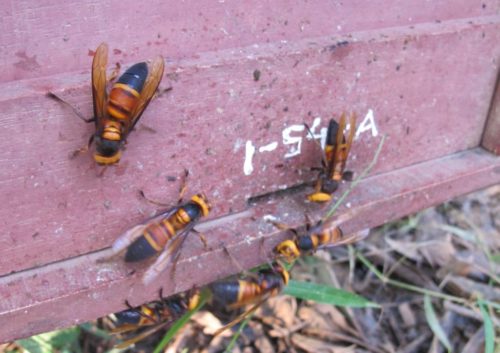
(Source: Heather Mattila, via University of Guelph.)
This problem has been going on for a long time in Asia, so the honeybees there have developed some ways of fighting back. For example, by swarming around the hornets and beating their wings very quickly, the bees can raise the temperature high enough to kill the hornets.
By studying honeybees in Vietnam for hundreds of hours, the scientists found something completely new. After the bees were attacked by giant hornets, the bees began collecting small bits of animal poop with their mouths and sticking it near the entrance to the hive.
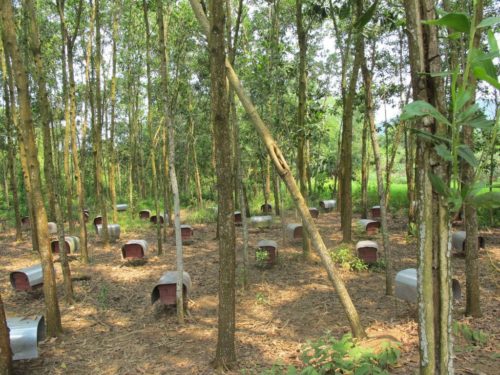
(Source: Heather Mattila, via University of Guelph.)
The bees use poop from many kinds of animals, including pigs, cows, and buffalo, but they seem to prefer the stinky poop that comes from chickens.
“I was shocked,” said lead scientist Heather Mattila, “Because bees have such a good reputation for being clean.”
The researchers recorded over 300 giant hornet attacks on the beehives. They learned that the more poop there was near the hive entrance, the less likely the hornets were to attack, or even spend time near the entrance.
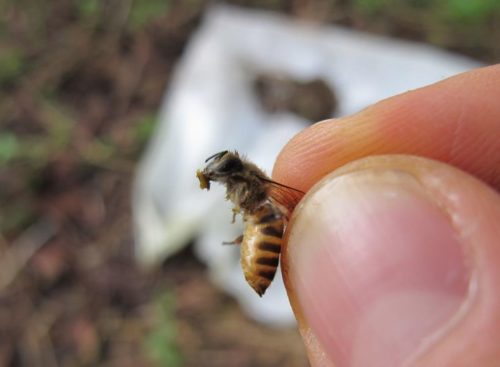
(Source: Heather Mattila, via University of Guelph.)
The poop also made the hornets 94% less likely to chew on the hive to make the entrance larger – something they have to do to get inside.
When the giant hornets attack a hive, they mark it with a special chemical. To see if the bees were using poop in response to the hornets, the scientists marked a hive with this special chemical. The bees soon began to spot the entrance with poop, even though there weren’t really any hornets.
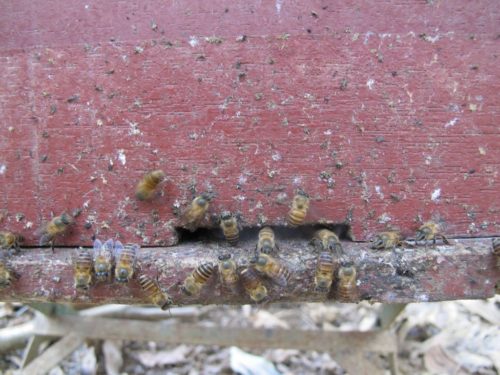
(Source: Heather Mattila, via University of Guelph.)
The scientists don’t know why the poop works to keep the hornets away. It could be that the poop smell hides the normally sweet smell coming from the hive. It’s also possible that the stink drives them away. It certainly seems to keep the hornets from chewing on the hive.
Asian honeybees have had a long time to develop methods for fighting giant hornets. That’s not true in Europe and North America.
Recently, the first Asian giant hornets were discovered in the US and Canada. Asian giant hornets are a close relative of the giant hornets that the researchers studied.
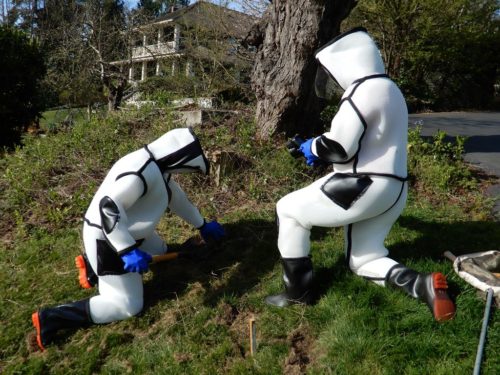
(Source: WSDA.)
Scientists are now working hard to wipe out all the hornets in the US and Canada. If they don’t, honeybees there could soon be in trouble.
The new information about poop protection could help. If scientists can figure out why the poop drives off the hornets, they may be able to find a way to help protect bees that can’t protect themselves.
Did You Know…?
Though not everyone agrees, the researchers believe the honeybees are using the poop as a “tool”. Using tools was long thought to be something that only humans and the most clever animals could do.
